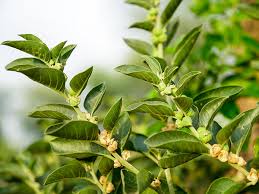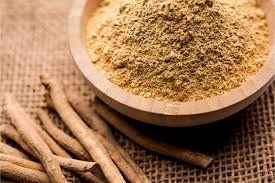Ashwagandha, scientifically known as Withania somnifera, is a prominent herb in Ayurvedic medicine, the traditional system of medicine practiced in India for thousands of years. Known as “Indian ginseng” or “winter cherry,” ashwagandha has garnered significant attention recently due to its impressive range of health benefits. This ancient herb has found its place in modern health regimes, offering a natural remedy for various ailments and promoting overall well-being.
Contents
Historical Significance
Ashwagandha’s name is derived from Sanskrit, meaning “smell of the horse,” which refers to its unique smell and ability to impart strength and vitality similar to that of a horse. Historically, it has been used as a Rasayana (a rejuvenator) in Ayurvedic medicine to promote longevity, mental acuity, and physical strength. Its use can be traced back over 3,000 years, highlighting its long-standing significance in traditional health practices.

Adaptogenic Properties
One of the most celebrated attributes of ashwagandha is its adaptogenic properties. Adaptogens are natural substances that help the body adapt to stress and promote homeostasis. In today’s fast-paced world, chronic stress is a common issue, leading to a plethora of health problems. Ashwagandha helps modulate the body’s response to stress, reducing cortisol levels, which are the primary stress hormones. Studies have shown that regular intake of ashwagandha can significantly decrease cortisol levels, helping individuals manage stress more effectively and maintain a balanced state of mind.
Cognitive Benefits
Ashwagandha is renowned for its cognitive-enhancing properties. It has been shown to support brain health, improve memory, and enhance cognitive functions. The herb is believed to protect nerve cells from damage and improve synaptic plasticity, which is crucial for learning and memory. Research suggests that ashwagandha can enhance both immediate and general memory, attention span, and information-processing speed. This makes it a valuable supplement for individuals looking to improve their mental performance, particularly in high-stress environments.
Anti-inflammatory and Antioxidant Effects
Chronic inflammation is a root cause of many health conditions, including heart disease, diabetes, and cancer. Ashwagandha possesses powerful anti-inflammatory and antioxidant properties, which help reduce inflammation and protect cells from oxidative stress. The active compounds in ashwagandha, such as withanolides, play a critical role in modulating the body’s inflammatory response and neutralizing free radicals. This, in turn, helps in the prevention of various chronic diseases and supports overall health.
Immune System Support
A robust immune system is essential for protecting the body against infections and diseases. Ashwagandha has been shown to boost the immune system by increasing the activity of natural killer cells, which are critical in the body’s defense against pathogens. Additionally, it enhances the body’s ability to produce white blood cells, further strengthening its immune response. Regular consumption of ashwagandha can, therefore, help enhance immune function and provide better resistance against common illnesses.
Energy and Endurance
For those seeking to improve their physical performance, ashwagandha offers significant benefits. It has been found to enhance energy levels, reduce fatigue, and improve overall physical endurance. Athletes and individuals engaging in strenuous physical activities can benefit from ashwagandha’s ability to increase muscle strength and recovery rate. Studies have demonstrated that ashwagandha supplementation can improve aerobic capacity, muscle mass, and muscle strength, making it a popular choice among fitness enthusiasts.
Hormonal Balance and Sexual Health
Ashwagandha has also been traditionally used to support reproductive health and balance hormones. For men, it has been shown to increase testosterone levels and improve sperm quality, which can enhance fertility. For women, it helps balance hormonal fluctuations, particularly during menopause, reducing symptoms such as hot flashes and mood swings. The herb’s adaptogenic nature plays a crucial role in regulating the endocrine system, thereby promoting hormonal balance and overall reproductive health.

How to Incorporate Ashwagandha into Your Routine
Ashwagandha is available in various forms, including powders, capsules, and tinctures. The recommended dosage can vary depending on the form and the specific health goal. For general health and stress reduction, a common dosage is 300-500 mg of ashwagandha extract taken twice daily. It’s always advisable to consult with a healthcare provider before starting any new supplement, especially for individuals with pre-existing health conditions or those who are pregnant or breastfeeding.
Conclusion
The resurgence of interest in ashwagandha highlights the growing recognition of traditional herbal remedies in modern health practices. With its wide range of benefits, from stress reduction and cognitive enhancement to improved physical performance and hormonal balance, ashwagandha stands out as a versatile and potent natural supplement. As more scientific research continues to uncover its therapeutic potential, ashwagandha is likely to remain a valuable ally in promoting health and well-being in the modern world.
Whether you are looking to boost your energy levels, manage stress, enhance cognitive function, or improve your overall health, ashwagandha offers a natural and effective solution. Embrace this ancient herb and experience its myriad benefits, bridging the gap between traditional wisdom and contemporary wellness.



